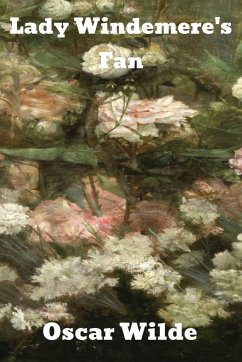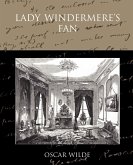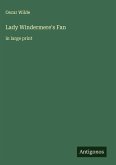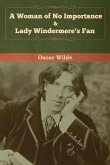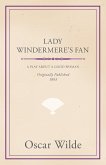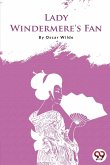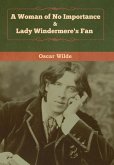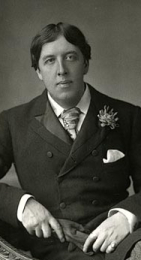Lady Windermere's Fan, A Play About a Good Woman is a four-act comedy by Oscar Wilde, first performed on Saturday, 20 February 1892, at the St James's Theatre in London. The story concerns Lady Windermere, who suspects that her husband is having an affair with another woman. She confronts him with it but although he denies it, he invites the other woman, Mrs Erlynne, to his wife's birthday ball. Angered by her husband's supposed unfaithfulness, Lady Windermere decides to leave her husband for another lover. After discovering what has transpired, Mrs Erlynne follows Lady Windermere and attempts to persuade her to return to her husband and in the course of this, Mrs Erlynne is discovered in a compromising position. It is then revealed Mrs Erlynne is Lady Windermere's mother, who abandoned her family twenty years before the time the play is set. Mrs Erlynne sacrifices herself and her reputation to save her daughter's marriage. By the summer of 1891 Wilde had already written three plays: Vera; or, The Nihilists and The Duchess of Padua had found little success, and Salome had yet to be staged. Unperturbed, he decided to write another play but turned from tragedy to comedy. He went to the Lake District in the north of England, where he stayed with a friend and later met Robert Ross. Numerous characters in the play appear to draw their names from the north of England: Lady Windermere from the lake and nearby town Windermere (though Wilde had used "Windermere" earlier in Lord Arthur Savile's Crime), the Duchess of Berwick from Berwick-upon-Tweed, Lord Darlington from Darlington. Wilde began writing the play at the prodding of Sir George Alexander, the actor manager of St James's Theatre. The play was finished by October.[4] Alexander liked the play, and offered him an advance of £1,000 for it. Wilde, impressed by his confidence, opted to take a percentage instead, from which he would earn £7,000 in the first year alone (worth £747,700 today). Alexander was a meticulous manager and he and Wilde began exhaustive revisions and rehearsals of the play. Both were talented artists with strong ideas about their art. Wilde, for instance, emphasised attention to aesthetic minutiae rather than realism; he resisted Alexander's suggested broad stage movements, quipping that "Details are of no importance in life, but in art details are vital". These continued after the opening night, when at the suggestion of both friends and Alexander, Wilde made changes to reveal Mrs Erylnne's relationship with Lady Windermere gradually throughout the play, rather than reserving the secret for the final act. Despite these artistic differences, both were professional and their collaboration was a fruitful one.
Bitte wählen Sie Ihr Anliegen aus.
Rechnungen
Retourenschein anfordern
Bestellstatus
Storno

